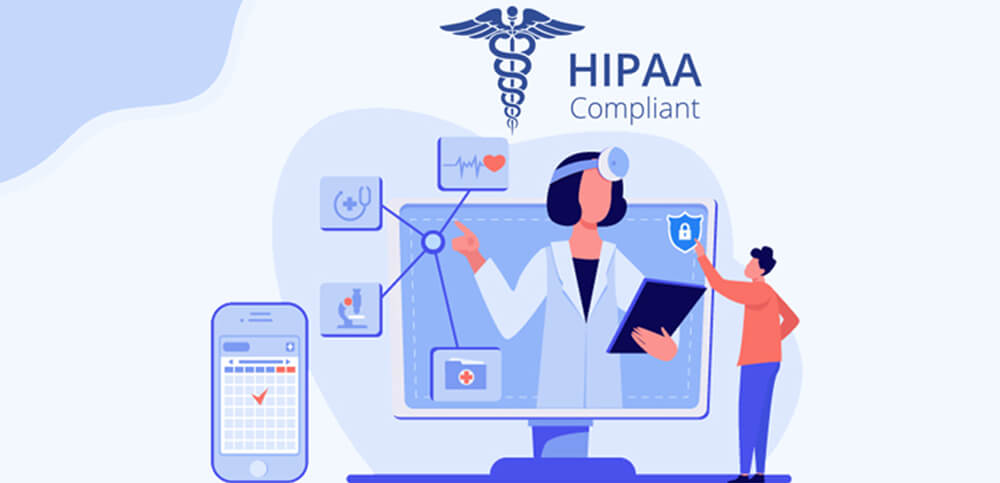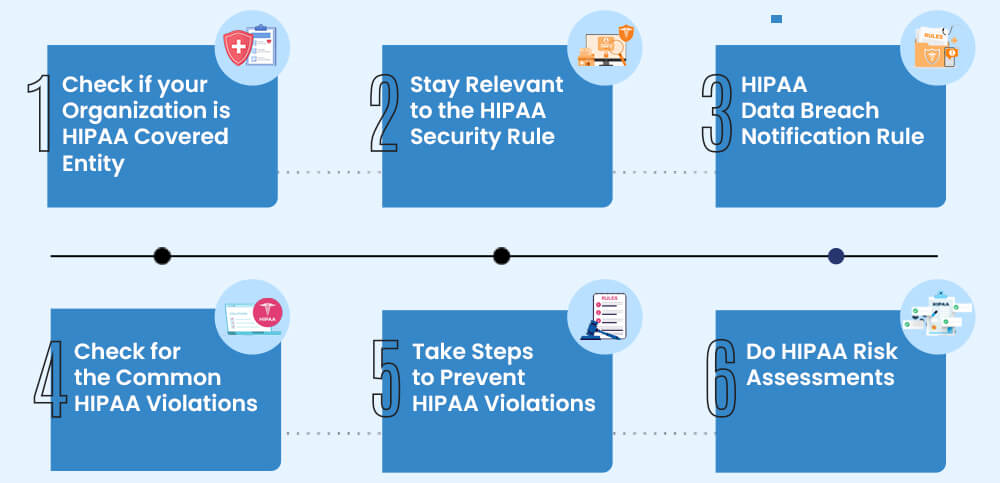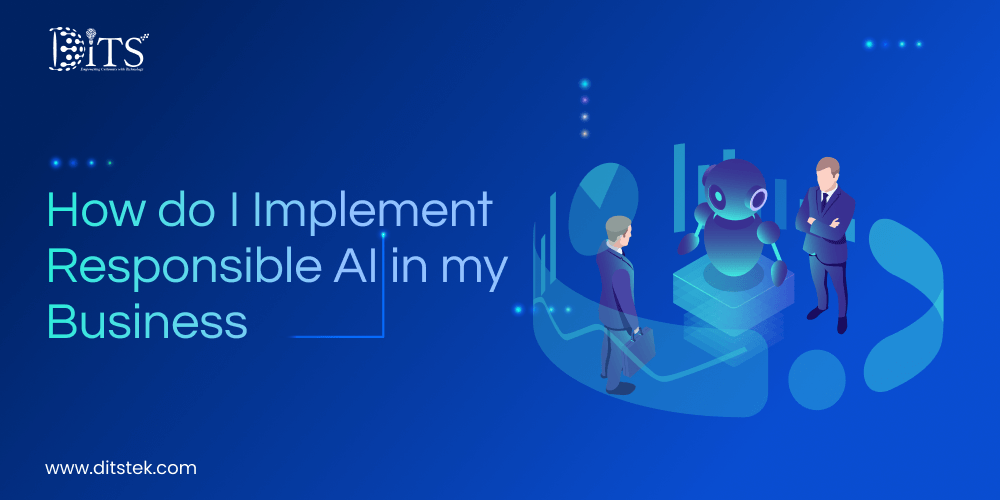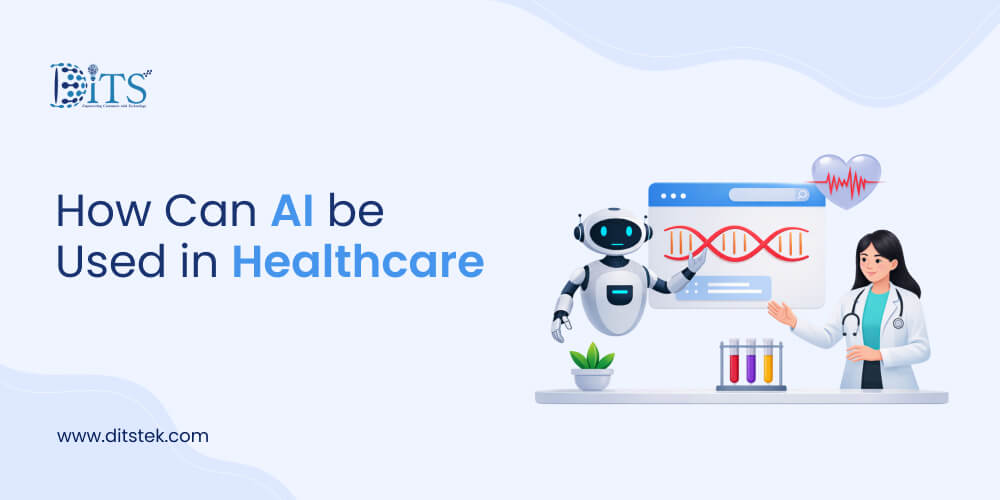HIPAA-Compliance Checklist for Healthcare Software Development
Table Of Content
Published Date :
30 Oct 2023
Are you looking to develop a healthcare app that could redefine the healthcare market by leveraging patient information? If yes, it is mandatory to ensure HIPAA compliance. But, what exactly is HIPAA compliance, why does it matter, and what are the steps to keeping healthcare software development safe for patients? This blog will discuss briefly about HIPAA and a checklist for HIPAA-compliant software.
HIPAA Compliance: Why Does it Matter?
HIPAA or Health Insurance Profitability and Accountability Act compliance is a Federal Law that makes it mandatory for organizations to regulate their security practices to comply with specific standards. These standards are rules & regulations for protecting the privacy of patients’ health information or PHI (protected health information).

As technology advances, HIPAA is becoming more important. Because, technology leaves databases more open to potential risks, like data breaches or phishing. It is critical to protect data more than ever.
Below are some important reasons why a healthcare application should stick to HIPAA compliance -
- By complying with HIPAA regulations, you build trust among patients that you care about their privacy.
- Some healthcare organizations may not work with organizations that don’t prioritize HIPAA compliance. This means, that being compliant with HIPAA expands your customer base.
- Adhering to HIPAA compliance standards can save you from penalties and improve your brand’s reputation.
- HIPPA safeguards users’ information by preventing any unauthorized access or use.
Also Read: Azure-Hosted Application for City Courts in React
HIPAA Compliance Checklist – Steps to Keep Healthcare Software Safe for Patients

-
Check if your Organization is HIPAA Covered Entity
A covered entity is any entity falling under the HIPAA regulations. In a nutshell, it includes any organization or database that has access to, stores, or transfers protected health information (PHI).
Earlier, the term "covered entity" comprised of healthcare providers, such as medical practices and hospital systems. However, due to the evolving landscape of health information technology companies, the scope of covered organizations has significantly expanded, covering a much broader spectrum.
Covered entities that must follow HIPAA include Health plans, Healthcare providers, and Healthcare clearing houses. In addition, healthcare and mHealth apps that need to be HIPAA compliant are EHR apps, Telemedicine apps, Medical records, Patient monitoring apps, etc.
-
Stay Relevant to the HIPAA Security Rule
HIPAA says PHI (protected health information) needs to be secure, no matter the format. The HIPAA Security Rule applies to all entities falling within the covered entities category, which includes a wide array of entities such as health plans, health information technology firms, health care clearinghouses, health care providers, researchers, and business associates. Also, individuals operating within the realm of digital healthcare should exercise diligence in ensuring compliance.
In order to develop HIPAA-compliant software, developers need to consider how the development team works without exposing data. The team must adhere to the Security Rule requirements. Create a checklist of security rules and communicate the requirements to the team.
-
HIPAA Data Breach Notification Rule
Under this regulation, HIPAA necessitates that notifications must be sent to the relevant authorities and victims in the event of a data breach. Depending on the extent of the data breach and the number of individuals impacted, it may also be obligatory to contact the Office for Civil Rights.
It is paramount to have your organization prepared to execute breach notifications effectively. This proactive approach helps minimize potential consequences and ensures adherence to strict timelines. While preventing breaches altogether is the way to go, HIPAA guidelines are indispensable and must be followed to avoid penalties.
-
Check for the Common HIPAA Violations
Storing healthcare data comes with high-security risks. It is important to understand the most prevalent HIPAA violations in order to prevent them in your organization. Unauthorized data access, hacking, loss of devices with PHI, etc. are the most common types of violations.
Most HIPAA violations happen due to human errors. This means these violations can be avoided if you have the right safeguard measures in place.
-
Take Steps to Prevent HIPAA Violations
Now that you know the potential risks for data, the next step is to implement the right safeguards. Though data security measures can’t combat every breach case, they go a long way in prioritizing patient data protection. The safeguard measures highlight steps for protecting data at every level and also elaborate ideas on how to implement those steps.
The best thing is to ensure that the safeguard steps are met right from the beginning of the development process. This way, the software development can progress with HIPAA compliance in mind. The end result will be a completely HIPAA-compliant solution.
-
Do HIPAA Risk Assessments
Engaging in a comprehensive risk assessment proves valuable in identifying potential challenges in your development process. These assessments facilitate data management and storage practices, enabling you to analyze your operational processes and implement robust security measures.
Pinpoint the vulnerabilities first. This includes the potential areas of violation and examining what practices could be put in place to prevent the damage. Create a list of the best practices for healthcare software development. Checking for vulnerabilities and taking proactive steps will keep your organization safe and up to date.
Also Read: Must Have Telehealth App Features
Conclusion
Development teams depend on trust for future projects. It is crucial to convey the risks associated with violations of HIPAA regulations. Further, it is mandatory for every member of the organization to align their understanding and commitment and work collaboratively to ensure adherence to HIPAA compliance standards.
The checklist mentioned above does not cover all the points software teams need to keep in mind; however, these high-level points will give you a glimpse of what needs to be considered.
At Ditstek Innovations, we understand HIPAA and how important it is to adhere to HIPPA guidelines when it comes to healthcare software development. We ensure every project is built with data safety and security at the forefront.
Request a free consultation today!

Nidhi Thakur
With more than 19 years of experience - I represent a team of professionals that specializes in the healthcare and business and workflow automation domains. The team consists of experienced full-stack developers supported by senior system analysts who have developed multiple bespoke applications for Healthcare, Business Automation, Retail, IOT, Ed-tech domains for startups and Enterprise Level clients.
Recent Posts

A practical guide explaining how to implement AI in business with responsible governance, secure integration, scalable architecture, and measurable operational impact across industries.

Explore how AI can be used in healthcare to improve diagnostics, automate operations, enhance revenue cycles, and deliver measurable performance outcomes across healthcare organizations.

Building health tech that actually works? Healthcare API integration makes EHR access, FHIR compliance, and real-time syncing possible. Here’s why it’s non-negotiable.